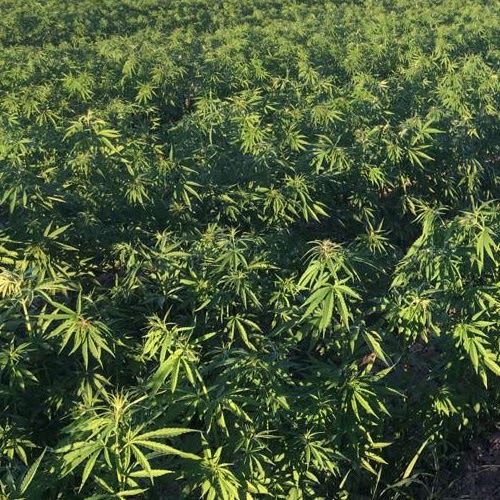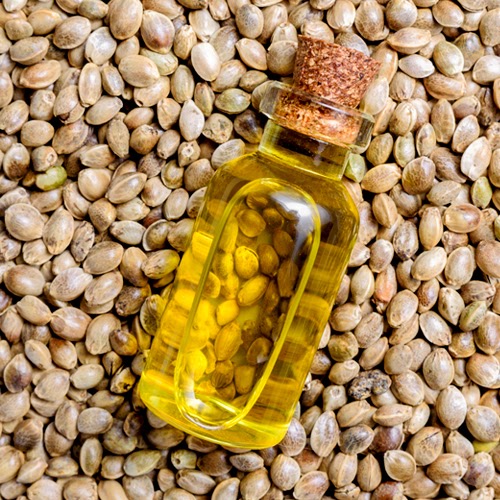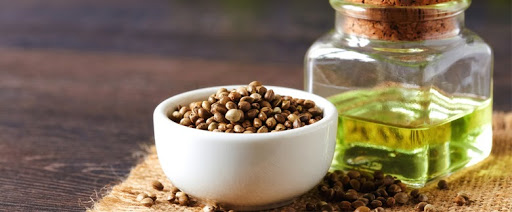Hemp belongs to the family of Marijuana but stands apart from it when it comes to chemical properties, its effects, and the varied uses. When the USA introduced the Drug Law, it covered all the types of cannabis, irrespective of their intoxicating qualities.
After many years, hemp is identified as an agricultural crop because of its numerous uses in our everyday life.
In this guide, we will be talking about what is hemp oil and the two types of oil-based derivatives and their distinctions.
Before we go further, let's have a look at the definition of hemp.
What is Hemp?

As mentioned, hemp comes from the family of Cannabis Sativa plant and is grown specifically for industrial uses. It has been in use for many centuries and is one of the first plants to be spun into usable fibre some 50,000 years ago. Hemp is non-intoxicating as it contains less than 0.3% THC, but it is loaded with properties that allow us to use each part of the plant for something beneficial. From its seeds, stalks, buds, to even its leaves and flowers, every part of the hemp becomes useful for us!
One such use of hemp is to extract oil from it, which, is then used for a varied purpose. But due to poor regulation and unclear distinctions, there is a lot of confusion among the oils. Let's clear that up!
The Confusion between Hemp oil and CBD oil
Now that we know what is hemp, let’s sort exactly what is hemp oil. Marijuana and hemp plants, both produce CBD in large quantities but differ slightly from one another less.
Hemp-derived CBD oil comes from industrial hemp plants that are usually skinny and scarce in foliage. They have a very limited percentage of THC, which makes them non-intoxicating. Since hemp-derived CBD oil does not have the associated effects of THC, it is largely appreciated by consumers who don't want the additional high or the entourage effect. Hemp also stands in the grey area of legalization, making this product more easily available than others.
Marijuana-derived CBD oil is extracted from the marijuana plants that are lush with thick foliage and flowers. Coming from different strains, they can vary in their THC and CBD percentage. CBD-rich marijuana is selected to make the CBD oil. With its high level of THC, it might provide effectiveness in certain conditions, but on the other hand, might also lead to undesirable effects due to the associated high. Depending on the laws of your hand, they can be even illegal to possess or buy.
This was all about the CBD oil, which can be extracted from both the types of cannabis. let's move to the hemp oil, which is extracted from the seed of the hemp plant, and is a staple in the beauty community.
| Also Read: Hemp vs. Marijuana - The Real Difference |
What is Hemp Oil?

Hemp Oil is extracted from the seed of the hemp plant, which is then utilized in many other products. Refined Hemp Oil is clear, colourless with a very undertone flavour. It is usually employed in the skincare section. On the other hand, Industrial Hemp Oil is utilised in lubricants, paints, inks, fuel and plastics.
Be careful before you're going to buy hemp oil since CBD oil and hemp oil are sometimes incorrectly marketed as the same thing. Look for the ingredient list, the hemp seed oil is often listed as “cannabis Sativa seed oil.”
How Is Hemp Oil Made?
We know what is hemp oil but let’s have a look at how it is made. CBD Oil is extracted in several ways, however, hemp seed oil has just one method of extraction; cold-press. The plant's seeds are cold-pressed with a 3:1 ratio of omega-6 to omega-3 essential fatty acids. This helps to release the nutrients and the oil, which are then utilized in their respective fields.
CBD oil extraction is a more complicated process which involves expensive machinery and CO2 to isolate the CBD from the plant and flowers. However, to conclude, hemp seed oil does not have a huge amount of CBD as compared to the hemp-derived CBD oil.
Hemp Oil in Food
Hemp seeds are added to salads and other foods because of their nutritional value and great taste. Similarly, the oil derived from the seeds are equally useful for nourishment and even skincare. Hemp oil has a unique nutty flavour which makes it ideal for salad dressing and pesto. The tasty oil is even used to drizzle on freshly baked avocado toast and other food items.
Another reason for its popularity is that it is a rich source of monounsaturated and polyunsaturated fats. People usually derive their necessary fats from fish and eggs, and hence hemp oil becomes a great alternative for vegans and people who are not very fond of animal products.
Hemp oil also has a high quantity of omega-3 and omega-6, which are a great addition to your daily diet. The Omega Fats also provide dietary fibre, Vitamin A, and Vitamin E. So all in all, they are a great addition to your kitchen pantry!
Hemp Oil in Beauty Products

You know what is hemp oil and its varied uses in our everyday kitchen needs. But, do you know it also finds its way into your vanity box and in many of the beauty products that you use? It is used in lotions, body washes, creams, lip balms, and more.
Taking the benefits a notch deeper, it also helps at a structural level. As discussed before, hemp oil is rich in omega-6 fatty acids which has a high amount of gamma-linolenic acid (GLA).
It also has a good amount of linoleic and oleic acids.
Hemp oil is additionally used in shampoos, in almost every skincare product, and even in your morning smoothie. But just remember, hemp oil is not CBD oil, and their uses and benefits are very different from one another.
This brings us to the end of what is hemp oil and its many uses. I hope you find this informational. If you have any questions, feel free to drop it in the comments below.
Till then, keep toking with Olivastu.



![[UPDATED] Hemp vs. Marijuana - The real difference](https://www.olivastu.com/media/magefan_blog/Featured4.jpg)